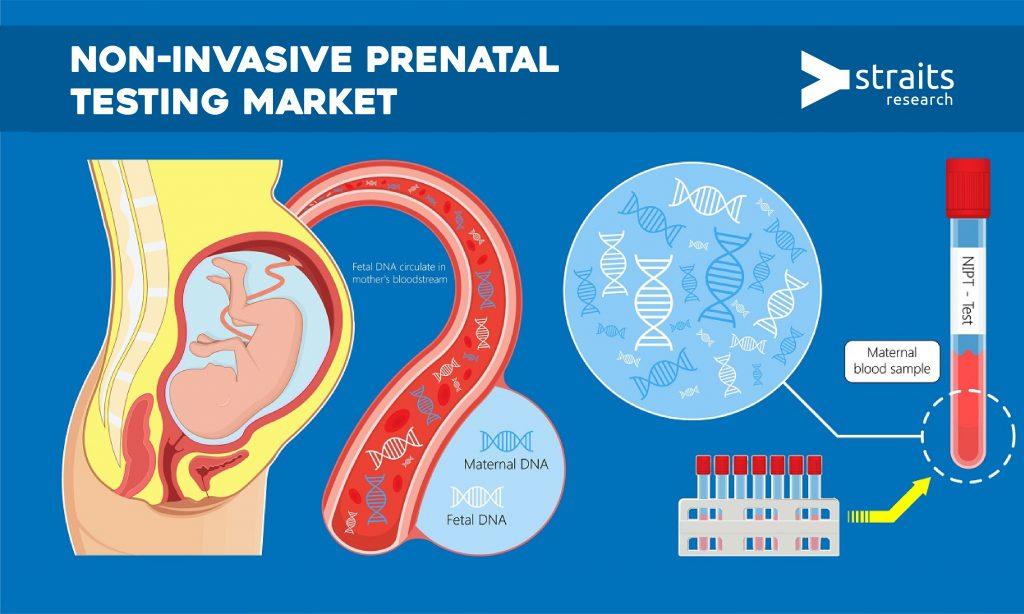(MENAFN- Straits Research) Non-Invasive Prenatal Testing Market Information:
non-invasive prenatal testing (nipt) is a type of prenatal screening that can detect genetic abnormalities in a developing fetus without invasive procedures like amniocentesis or chorionic villus sampling (CVS). NIPT involves analyzing cell-free fetal DNA in the mother's blood to detect specific chromosomal conditions such as Down syndrome, Edwards syndrome, and Patau syndrome. The test is generally recommended for women with an increased risk of having a baby with chromosomal abnormalities, such as those over the age of 35, those with a history of chromosomal conditions in previous pregnancies, or those with a positive result on other prenatal screening tests.
NIPT is considered a safe and reliable way to screen for chromosomal abnormalities in a developing fetus. Unlike invasive procedures, NIPT poses no risk of miscarriage or other pregnancy complications. The test can be performed as early as 9-10 weeks of pregnancy and typically provides results within a few days to a week.
Request Sample Report @
However, it's important to note that NIPT is a screening test, not a diagnostic test. If NIPT indicates a high likelihood of a chromosomal abnormality, further testing with invasive procedures may be recommended to confirm the results. Additionally, NIPT may not detect all chromosomal abnormalities or other genetic conditions.
Overall, NIPT is a valuable tool for prenatal screening and can provide important information to expectant parents about the health of their developing fetus. However, it's important to discuss the risks and benefits of NIPT with a healthcare provider and to have a clear understanding of what the test can and cannot detect.
Drivers: Increasing maternal age leading to higher incidence of chromosomal abnormalities in fetuses Non-invasive nature of testing leading to higher adoption rates compared to invasive testing Growing awareness and acceptance of NIPT among healthcare professionals and patients Advancements in sequencing and analysis technologies enabling more accurate and reliable results
Opportunities: Expansion of NIPT to include testing for a wider range of genetic disorders and conditions Increasing demand for early and non-invasive detection of fetal abnormalities Growing focus on personalized medicine and precision diagnostics
Restraints: High cost of testing, which may limit access for some patients Limited availability of testing in some regions, particularly in developing countries Regulatory challenges and uncertainty surrounding reimbursement policies in some markets Concerns about over-reliance on NIPT and potential for misinterpretation of results.
MENAFN14022023004597010339ID1105570195
Legal Disclaimer:
MENAFN provides the
information “as is” without warranty of any kind. We do not accept
any responsibility or liability for the accuracy, content, images,
videos, licenses, completeness, legality, or reliability of the information
contained in this article. If you have any complaints or copyright
issues related to this article, kindly contact the provider above.




















Comments
No comment